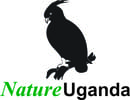Training in ecotourism to boost conservation of Mabamba Wetland

Wetlands are vital ecosystems, providing clean water, fisheries, waste filtration, and opportunities for recreation. Yet Uganda’s wetlands have declined sharply—from 15% of land cover in 1994 to just 8% in 2020—due to clearance for farming, unsustainable resource use, and invasive species. These threats endanger biodiversity and the livelihoods of communities who depend on wetlands.
Mabamba Bay Wetland, a Ramsar site, an Important Bird Area on Lake Victoria and home to globally vulnerable species such as the Shoebill and Blue Swallow, is no exception. To safeguard this important site, NatureUganda is implementing a project, which aims to strengthen community resilience and conserves critical biodiversity in Mabamba and Kiyanja-Kaku wetlands. The project is funded by the 2022 Prince William Award for Conservation in Africa, presented to Achilles Byaruhanga, NatureUganda’s Executive Director, at the Tusk Conservation Awards.
As part of these efforts, NatureUganda is supporting the Mabamba Wetland Ecotourism Association (MWETA) to promote sustainable ecotourism. From 8th–9th July 2025, NatureUganda, in partnership with the Uganda Community Tourism Association (UCOTA), trained 31 MWETA members in sustainable tourism. The training covered interpretive bird guiding, customer care, marketing strategies, and community tourism business planning, equipping the group with skills to design guided tours, improve service delivery.
“We appreciate this enriching training and NatureUganda’s continued support. We are committed to applying these skills to improve tourism, develop our community, and conserve Mabamba Wetland.”– Mr. Kasasa Hannington, Chairperson, MWETA
With enhanced capacity, MWETA aims to attract more visitors to Mabamba Bay, boosting local incomes while providing a powerful incentive to conserve this globally significant wetland.
Related Posts
Recent Posts
Safeguarding Uganda’s Only Breeding Population of Rüppell’s Vultures
Culture, Traditional Knowledge and Uganda’s Wetlands: Insights from the World Wetlands Day 2026 Public Dialogue
Annual Planning Meeting Sets the Course for Conservation Action in 2026
All Categories
- capacity building (1)
- Conservation and Development (36)
- Eco-tourism (6)
- Education and Awareness (15)
- Forests (13)
- Gorvenance (2)
- Habitats (14)
- membership (2)
- Nature walk (3)
- People (10)
- Projects (13)
- Public dialogue (10)
- Research and Monitoring (23)
- Sites (6)
- Species (14)
- Wetlands (17)
- Wildlife (10)




